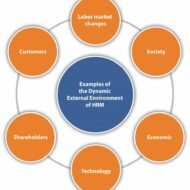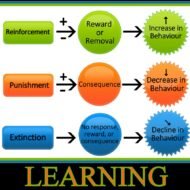Posted by Managementguru in Business Management, Human Resource, Interview Questions, Principles of Management, Training & Development
on Mar 22nd, 2014 | 0 comments

The Purpose of a Job Interview Interviewing cannot be viewed just as a two way conversation, but as a process of social interaction. Personal interview is the most flexible tool that helps to obtain the most accurate information about the prospective candidate as the presence of the interviewer makes it hard for the respondent to report incorrectly. You might have seen some poker players with a winning spree. That is because of their ability to guess opponent’s potential apart from their own knowledge about the game. The same applies to an effective interviewer who elicits the most appropriate information from the interviewee by gauging his potential and scope. Ambience: The ambience of an interview should facilitate the respondents to freely come out with their ideas about what they expect from the job and also what they are capable of contributing in terms of lifting the organization to greater heights. Fear generally grips freshers who may not have had exposure to such situations that decides their future. Even before completing their engineering or professional courses students get placed in very good companies that offer much scope in terms of pay and career advancement. It has become statutory for these students to express themselves in the most impressive manner to capture the interest of the interviewers and to outsmart their rivals competing for the same position or capacity. Body Language: Your body language speaks volumes about the self confidence you possess, whether you are really capable of leading. Pleasing personality is definitely a plus and it is a winning strategy to get noticed among the pool of prospects. Try to be as modest and dignified in your behavior and attitude but at the same time be self assured to avoid any question that falls beyond the scope of discussion or if it is aimed to puncture your ego. Stress Interviews: Most of the stress interviews are structured in order to test the tolerance level of the prospective employees given a crisis situation and also to judge their decision making skills in such a situation. Rapid fire questions are thrown before you, wherein either you can buy some time to think, keep quiet to prove your self control or burst open and check out. Higher level management interviews are of this order as managers of the senior levels and CEO’s are constantly exposed to pressure situations and they need to keep their think tank cool to keep going. Systematic interviewing using lucid language is welcome. The session must be to the point and the respondent should not lose interest in the interview. Emotional and leading questions better be avoided. The interviewer must be a trained man who has the ability to conduct the interview in the most natural way and also should be well informed about all the possible and important aspects about the prospective candidates. Hypothetical Questions: Recent trend is to ask hypothetical questions where the respondent has to place himself in a particular situation and arrive at solutions. This probes beyond the skill sets that the respondent possesses and it concentrates on the crisis management ability, presence of mind and the quick wit of individuals. Corporate companies conduct their interviews in a completely different manner. They are more concerned about the attitude, morale, soft skills, role analysis and the like. How an individual performs as a member of a team or a group and how well he can lead his team in times of crisis are a matter of concern in big corporates. Say for instance, if you are the head of a company, what possible changes would you bring in terms of sales, marketing and production? What will be...

Posted by Managementguru in Business Management, Human Resource, Organisational behaviour, Principles of Management
on Mar 20th, 2014 | 0 comments

Changing Trends and Challenges in HRM The very conception of Human resource management has changed tremendously in the recent past as it has taken a new form and shape that embraces each and every activity of the organization, as every action requires human intervention. Human resource has become the most important of all the resources from the point, where it was merely one of the many resources. What has caused this great transformation? What has made firms recognise that manpower is the most important of all resources to the extent of including human resource in their accounting as assets! Evolution of HRM: A thorough analysis of the evolution of human resource management clearly indicates the exceptional quality of manpower, especially managers to tackle the very many challenges that come on their way. A manager who was merely a reporter to the top level management has now become indispensable. The laborers whether skilled or unskilled cannot be treated the way they were treated earlier, as the introduction of many labor laws support their cause. The legal framework guides the organization in terms of pay scale, bonus and increments and supports the workers in their welfare, security and safety. Globalization, Privatization and Liberalization: With the initiation of globalization, privatization and liberalization the firms are exposed to more competition and the managers have to put their think tanks to the best use in order to sustain and succeed in the market. People from various background work together in a multinational firm; their language, dress code, food habits, style of working and adaptability are quite different from one another. A human resource manager must go for a “culture” that is unique to the organization. He has to be proactive in order to safeguard the employees from a “culture shock”, by training them sufficiently before induction. Human behavior: Management of human resources by itself is complex and it needs people with special skills. The unpredictable nature of human behavior makes the job more difficult. In the task of managing the emotions and behavior of his employees, a manager must not lose his composure at any point of time for which he has to be a balanced personality. How many of us are gifted with a balanced state of mind and especially in a crisis situation many of us scream our lungs out and blame others for our own faults. Employee Motivation: Motivating the employees to do the job and steer them in the right direction is a Himalayan task for most of the managers. For this they have to adopt a participative style of leadership that will make the employee come closer to them in terms of trust and openness and also it enhances the productivity by improving the efficiency. A relaxed mind is more efficient than one with tight cords. It thinks and acts freely and gives its best. Now a days employees are more educated and informative, so you cannot take them for granted. They are aware of their rights and privileges regarding their jobs and work environment and managers need to handle them very cautiously and intelligently when it comes to satisfying their needs, sentiments and attitude. Handling a large number of employees, allotment of employees to shifts, managing the turnover and keeping the morale high are some of the challenges that the management has to face up to. Achieving the Desired Results: The biggest challenge of any modern manager would be to show results by managing his team. Achieving targets in the specified time is a herculean task; also making people working for the firm realize and understand that unless and until their products and services are of international standards and customer satisfying,...

Posted by Managementguru in Business Management, Organisational behaviour, Principles of Management
on Mar 7th, 2014 | 0 comments

Reinforcers and Behaviour Changes Reinforcers induce and enhance the association between the cue and the expectancy. This leads to increased performance levels and positive attitude development. This is an effective and efficient strategy that has been proved to be successful. Reinforcement is inevitable for learning process and in a dynamic corporate business environment, unlearning the old things and learning and adapting oneself to satisfy the needs of the changing environmental and economic factors is the critical success factor that serves as the backbone of the success of the company. Significance of Learning: Learning is not the only attribute that gets enhanced by reinforcers; as a result there is a repetition of desirable behavior that helps in maintaining the consistency, cordiality and climate of the organization. Reinforces increase the strength of response leading to desirable or undesirable consequences depending upon the kind of reinforcer, which might be a reward or a punishment. Either way it elicits response that gets strengthened in course of time. Mindset of People: The management side that is the deciding authority has to come to clear terms with the kind of treatment applicable on specific situations; say for instance when there is a need to complete a project in the stipulated time or achieve quantifiable targets which may prove very challenging or increase the production capacity in order to retain a major market share. Whatever be the case, the morale of the workers down the line, executives who coordinate the process, the managers who manage and report has to be maintained in the highest order. The mind set of the people working for you is very important as it encompasses the quality of work done, commitment to duty and determination to reach the target on time. Rewards: Rewards always make people happy and are found to be positively reinforcing. If you feel that monetary rewards are always a better stimulus, you are wrong. Money is always considered to be a reward; to consider it as a reinforcer cannot be neglected but at the same time it definitely is not a positive reinforcer.Feedback on performance is rated high on the reinforcer scale which takes you to the next level as a performer. Modern organizations have understood the system’s anomaly that gives undue importance to the huge amount of data that speaks volumes about people and their merits and achievements. Is it really enough to know things about people? People expect feedback about their performance and people with some degree of achievement definitely have an intense desire to know how they are doing? The more specific your feedback is, better the impact and greater the delay between the performance and feedback, the less the effect. Work Environment: The work environment itself can serve as a very good positive reinforcer provided there is freedom of expression, liberty to participate and an open door policy adopted by the managers and superiors. The top level management must take utmost care to design the reward system in such a way that it warrants fairness and equity. Employees are motivated to go for self appraisals with goal setting that is the biggest reinforcer of all times. Recognition: Recognition, rewards and praise tend to boost the ego of individuals which you can work it up to your advantage. Punishment is one of the most used and convenient but least understood and badly administered aspect of learning and reinforcing. Punishment equally alters the behavior of your subordinates which becomes more complex in course of time. Positively dealing with your subordinates by giving them one more chance, of course with a warning might serve the purpose. If punishments modify the behavior...






